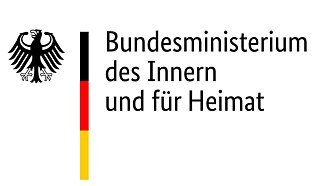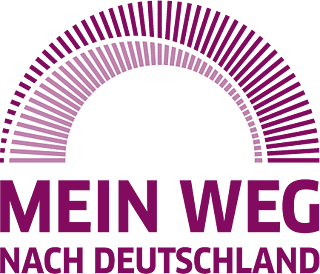{{event.headline}}
Online |
Your preparation guide for Germany
The two pre-integration courses "Prepared and Successful to Germany" of Diakonie in Deutschland and "Living and Working in Germany" of the Goethe-Institut are carried out in Nigeria in close cooperation between the Goethe-Institut Nigeria and Diakonie in Deutschland. Both services are financed/co-financed by the EU Asylum, Migration and Integration Fund (AMIF). The offer "Prepared and successful to Germany" is additionally supported by funds from the Federal Republic of Germany (Federal Government Commissioner for Migration, Refugees and Integration, as well as the Federal Office for Migration and Refugees) , the State of Hamburg, as well as from the Diakonie and the Goethe-Institut’s own funds.




